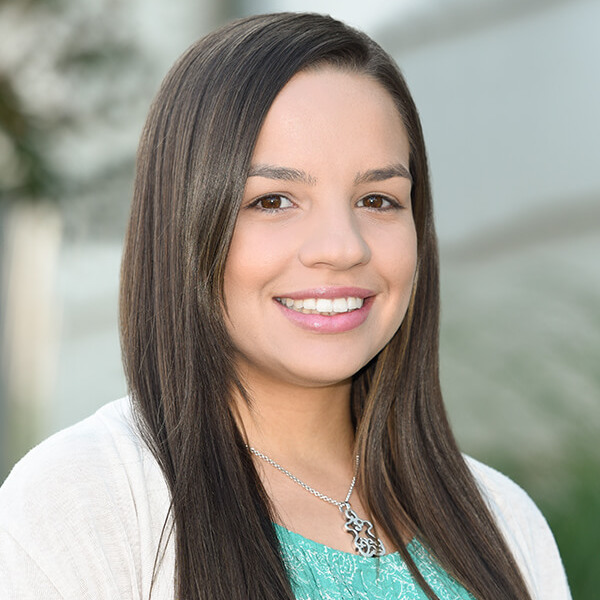 In April 2023, Alejandra Colón-López, Ph.D., the Department of Medical Education’s first postdoctoral scholar in its history, received a MERIT award from NIH/NIGMS. The Mentored Experiences in Research, Instruction, and Teaching (MERIT) Program is an Institutional Research and Academic Career Development Award (K12) that aims to allow postdoctoral scholars opportunity for research and teaching experiences.
In April 2023, Alejandra Colón-López, Ph.D., the Department of Medical Education’s first postdoctoral scholar in its history, received a MERIT award from NIH/NIGMS. The Mentored Experiences in Research, Instruction, and Teaching (MERIT) Program is an Institutional Research and Academic Career Development Award (K12) that aims to allow postdoctoral scholars opportunity for research and teaching experiences.
“Most people who graduate from a Ph.D. program start a faculty position that requires teaching classes, and we're not trained to do that. We don't necessarily know how to effectively deliver a class,” Colón-López says. “The program itself has a component where students will get extra training in teaching, in combination with shadowing and actual teaching opportunities.”
Colón-López, who received her Ph.D. in Medical Sociology from UAB in Summer 2022, began working within the Department of Medical Education as a postdoctoral scholar in August 2022. For many years, her goal had been to work within a medical education department of a school of medicine, and this current opportunity allows her to do just that, performing research that has been important to her since she was in school. As a Ph.D. student, she noticed research in sociology focused more on patient outcomes, and she believed more attention should be placed on providers. This vision became part of her dissertation and remains a factor in her research today.
With the MERIT funding beginning in September 2023, Colón-López’s role within the Department of Medical Education will shift to incorporate protected time for the MERIT program, with 75% of her time dedicated to research and the remaining time dedicated to education training. She describes this 25% of her time as teaching and educational opportunities that will help her become the effective teacher she wants to be.
The work she performs in the Department of Medical Education centers around impacting the future of undergraduate medical education. Within this scope, Colón-López helps to develop and employ research that affects the learning environment. “That research will go into developing interventions and policies to enhance the quality of learning experiences for our students,” she explains.
The exit survey administered to all graduating medical students by the Association of American Medical Colleges (AAMC), for example, provided Colón-López with student data pertaining directly to their learning. This quantitative data allowed her to determine educational trends from past years, where these trends have changed, and what needs shifting in the future. “I had multiple meetings with deans and people in leadership, not just from the Birmingham campus but also from the regional campuses. Also, I met the students to get a more holistic perspective of what's going on and what needs to be addressed. Based on that, I proposed developing my own survey.”
Working alongside Anne Zinski, Ph.D., Associate Professor, Colón-López developed and launched the survey in March 2023 for Heersink School of Medicine students, faculty, and residents. As a proponent of mixed methods research, she also performed interviews and focus groups with faculty and students. The responses from these various channels were categorized and allowed her to contrast or explain what she’d seen in the quantitative data to determine the resulting trends.
Colón-López’s core mission within this research is to identify factors that can interfere with student learning and to help create policies that will improve the student experience. To this end, she is interested in the composition of the student body within medical education and how those students may differ from the individuals educating them. While they are students, she wants to ensure medical schools employ systems to support the students, helping them complete their goals of becoming medical professionals. Once the students graduate, she also wants to ensure those same individuals, especially graduates from underrepresented minority groups, are supported so they can successfully integrate into the medical field.
Reflecting on her position within the Department of Medical Education and her future involvement with the MERIT program, Colón-López mentioned how happy she is to have received this opportunity. Whereas few postdoctoral scholars land a position that deals directly with their research interests, Colón-López “hit a home run” with her position working with undergraduate medical education within UAB Heersink School of Medicine.